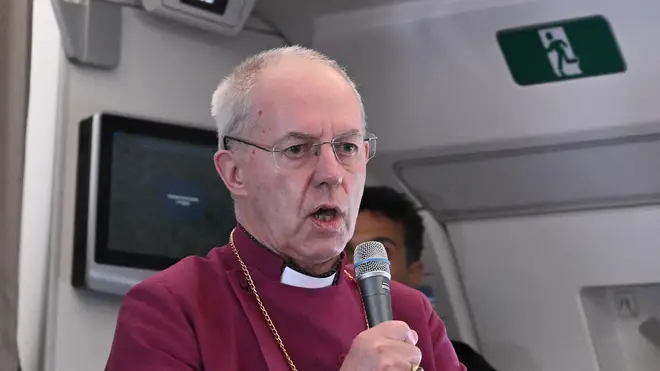
Nick Ferrari 7am - 10am
8 February 2023, 09:47 | Updated: 8 February 2023, 09:53

Bishops are to review whether the Church of England should continue referring to God with male pronouns.
Christians often refer to God as He and Him but now a project on "gendered language" about God is due to start later this year.
Any changes would mark a divergence from Jewish and Christian teachings dating back millennia.
It could see changes to phrases such as "Our Father", including in the Lord's Prayer, which Jesus is said to have told his followers to say together.
The Rt Rev Dr Michael Ipgrave, Bishop of Lichfield and vice-chair of the liturgical commission responsible for considering changes, said the Church had been "exploring the use of gendered language in relation to God for several years".
"After some dialogue between the two Commissions in this area, a new joint project on gendered language will begin this spring," he said.
"In common with other potential changes to authorised liturgical provision, changing the wording and number of authorised forms of absolution would require a full Synodical process for approval."

The Rev Joanna Stobart, the vicar of Ilminster and Whitelackington in Somerset, had asked about the progress on developing "more inclusive language" in services during a synod.
While the move was welcomed by some liberal Christians in the Church, conservatives have hit back at the plans.
"The fact that God is called 'Father' can't be substituted by 'Mother' without changing meaning, nor can it be gender-neutralised to 'Parent' without loss of meaning,” the Rev Dr Ian Paul told The Telegraph.
"Fathers and mothers are not interchangeable but relate to their offspring in different ways.
"If the liturgical commission seeks to change this, then in an important way they will be moving the doctrine of the Church away from being grounded in the scriptures."

A Church spokesman said: "This is nothing new. Christians have recognised since ancient times that God is neither male nor female, yet the variety of ways of addressing and describing God found in scripture has not always been reflected in our worship.
"There has been greater interest in exploring new language since the introduction of our current forms of service in contemporary language more than 20 years ago.
"As part of its regular programme of work for the next five years, the Liturgical Commission has asked the Faith and Order Commission to work with it on looking at these questions.
"There are absolutely no plans to abolish or substantially revise currently authorised liturgies, and no such changes could be made without extensive legislation."